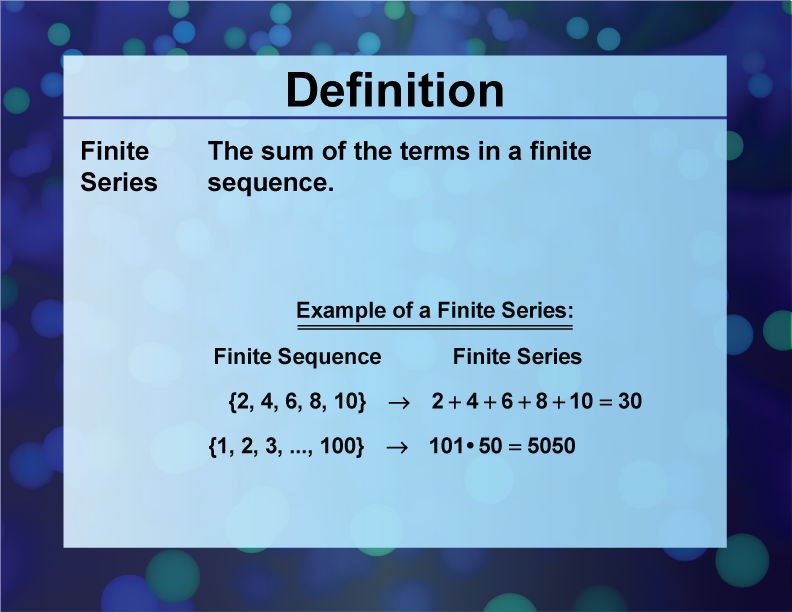
Display Title
Definition--Sequences and Series Concepts--Finite Series
Display Title
Finite Series

Topic
Sequences and Series
Definition
A finite series is the sum of the terms of a finite sequence.
Description
A finite series is a significant concept in mathematics, representing the sum of the terms of a finite sequence. This concept is essential in various mathematical and scientific applications, including statistics, finance, and computer science.
In real-world applications, finite series are used in financial calculations, such as determining the total amount of payments over a fixed period. They are also used in data analysis to find the sum of a dataset. Algebraically, a finite series can be expressed as
Sn = a1 + a2 + a3 +…+ an
where n is the number of terms.
Understanding finite series is crucial for math education as it helps students develop skills in summation and series analysis. It provides a foundation for more advanced topics in calculus and algebra, and aids in developing problem-solving skills.
For a complete collection of terms related to sequences and series click on this link: Sequences and Series Collection
| Common Core Standards | CCSS.MATH.CONTENT.6.SP.B.4, CCSS.MATH.CONTENT.HSF.IF.A.3, CCSS.MATH.CONTENT.HSF.BF.A.2, CCSS.Math.CONTENT.HSF.LE.A.2 |
|---|---|
| Grade Range | 6 - 9 |
| Curriculum Nodes |
Algebra • Sequences and Series • Series |
| Copyright Year | 2021 |
| Keywords | data analysis, arithmetic sequence, common difference, definitions, glossary terms, geometric sequence, common ratio |